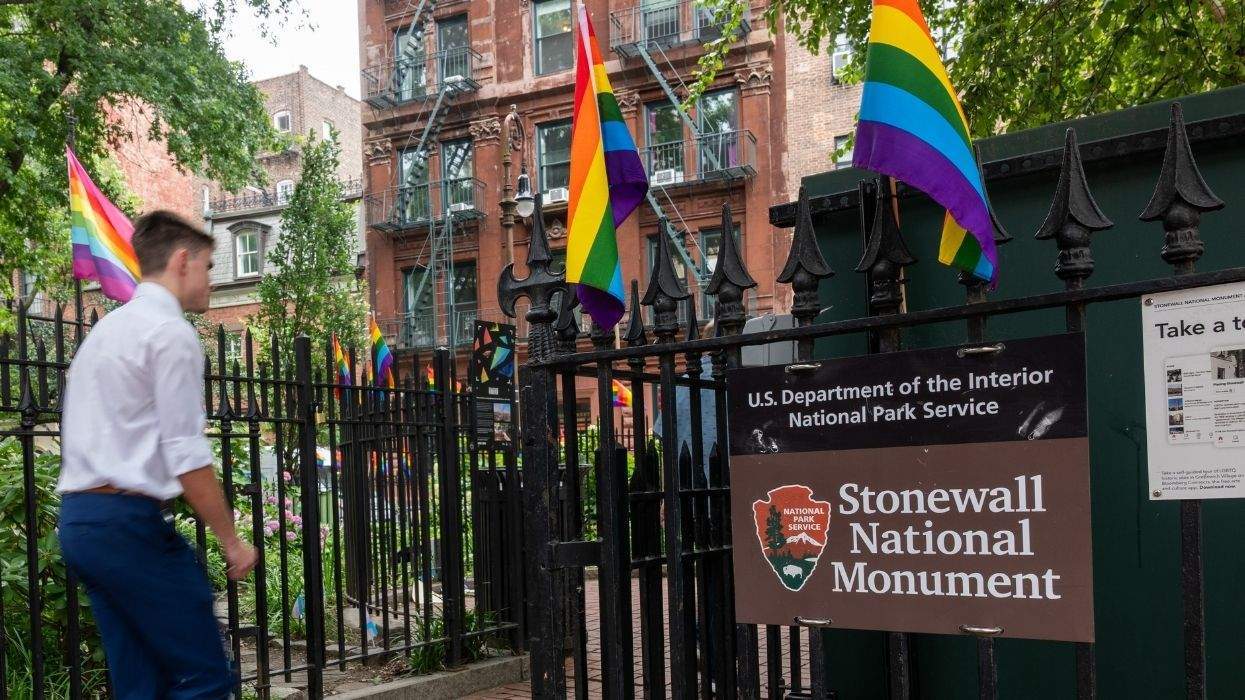It used to be "gay marriage," then it was "same-sex marriage," and now it's "marriage equality" — but which term is the most accurate?
We're always changing our language to better reflect our identities and our communities' needs. The fight for LGBTQ+ marriage rights is no exception, especially as that right comes under attack.
Here at The Advocate, we prefer marriage equality. Keep scrolling to learn why.
Gay marriage
Gay marriage seems to be the go-to term when discussing the legal rights of same-sex couples. A report from Gallup found that the term “gay marriage” was far more popular than “same-sex marriage" among the general public, both of which out-ranked "marriage equality."
However, many people in same-sex relationships are not gay or lesbian — one or more partners could be bisexual, asexual, or another queer identity. Civil rights expert and writer Tom Head notes that even some opposite-sex marriages could be considered gay marriages — particularly "lavender marriages."
"Many opposite-sex marriages are technically gay marriages," Head explained. "Gay men and lesbians often marry members of the opposite sex (who might be heterosexual or might also be gay), and for a variety reasons (denial, mutually agreed-upon financial convenience, or simply to construct a more effective closet)."
Head also contended that using terms like "same-sex marriage" could help destigmatize the fight for equality, as they have a "less painful history." He explains, "There has been so much hostility directed against same-sex marriage under the terminology of 'gay marriage' that the phrase almost sounds like a pejorative now."
Same-sex marriage
Same-sex marriage is also not an entirely accurate term. A marriage between a cisgender man and transgender woman (perhaps who can't update her documents, or who has not undergone gender-affirming care) would legally be considered a same-sex marriage. This not only invalidates her gender identity, but has been used to legally invalidate similar marriages in the past.
Christine Jorgensen, a trans woman, was denied a marriage license in New York in 1959 because of her sex assigned at birth. She was prevented from marrying her fiancé, Howard Knox, a cis man, because her birth certificate listed her as male.
The 1976 case M.T. v. J.T. challenged that precedent, with the Superior Court of New Jersey ruling that trans people could marry on the basis of their gender identity. That decision was later overturned in the 1999 case Littleton v. Prange, in which the Texas Fourth Court of Appeals prevented Christie Lee Littleton, who had been widowed, from suing a doctor for her husband's death by ruling their marriage license was not valid because she was trans.
As recently as 2009, J'Noel Gardiner, a trans woman, was prevented by the Kansas Supreme Court from inheriting her dead husband's property when the court similarly ruled their marriage was invalid because of her sex assigned at birth. Unions between trans and cis people would not be recognized until the 2015 U.S. Supreme Court case Obergefell v. Hodges, which solidified the right for same-sex couples to marry nationally.
Marriage equality
"Marriage equality" is the most accurate term, as it encompasses all LGBTQ+ relationships and identities. It also aligns the queer community with adjacent movements, such as those defending interracial marriage and people with disabilities fighting to end the "marriage penalty."
This intersectional approach was notably used by Democrats to pass the Respect for Marriage Act. Signed into law by President Joe Biden in 2022, the act mandates that the federal government recognizes both same-sex and interracial marriages, and that all states recognize those performed in other states.
Two-thirds of U.S. adults (67 percent) support LGBTQ+ marriage equality, according to a survey from the Public Religion Research Institute, including 50 percent of Republicans, 83 percent of Democrats, and 72 percent of independents. Interracial marriage has even more support in a Gallup poll at 94 percent.
Don't believe this intersectional approach is working? Take this Christian anti-LGBTQ+ website's word for it, as they state: "'Marriage equality' is the latest catchphrase to be thrown into the gay marriage / same-sex marriage debate. The term 'marriage equality' is an attempt to reframe the conversation and ascribe a certain level of irrationality to those who oppose same-sex marriage. To oppose the recognition of homosexual unions as marriages is one thing. But it is much more difficult to oppose 'equality' in marriage rights."
















Charlie Kirk DID say stoning gay people was the 'perfect law' — and these other heinous quotes
These are some of his worst comments about LGBTQ+ people made by Charlie Kirk.